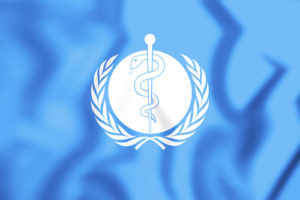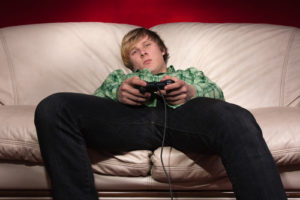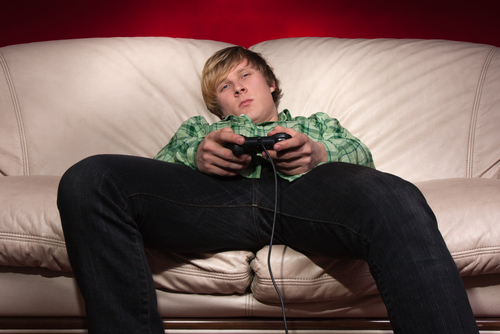 In its latest revision to an international disease classification manual the World Health Organization announced “gaming disorder” as a new mental health condition included in the 11th edition of its International Classification of Diseases. Dr. Henrietta Bowden-Jones, a spokesperson for behavioural addictions at Britain’s Royal College of Psychiatrists said,”We come across parents who are distraught, not only because they’re seeing their child drop out of school, but because they’re seeing an entire family structure fall apart”. WHO and other experts were quick to note that cases of the condition are still very rare, with no more than three percent of gamers are believed to be affected.
In its latest revision to an international disease classification manual the World Health Organization announced “gaming disorder” as a new mental health condition included in the 11th edition of its International Classification of Diseases. Dr. Henrietta Bowden-Jones, a spokesperson for behavioural addictions at Britain’s Royal College of Psychiatrists said,”We come across parents who are distraught, not only because they’re seeing their child drop out of school, but because they’re seeing an entire family structure fall apart”. WHO and other experts were quick to note that cases of the condition are still very rare, with no more than three percent of gamers are believed to be affected.
In the definition for gaming disorder which was released earlier in 2018, WHO said those who are affected would show a pattern of behaviour characterized by “impaired control over gaming, increasing priority given to gaming over other activities to the extent that gaming takes precedence over other interests and daily activities, and continuation or escalation of gaming despite the occurrence of negative consequences.” The studies suggest that when these individuals are engrossed in internet games, certain pathways in their brains are triggered in the same direct and intense way that a drug addict’s brain is affected by a particular substance,” the association said.
Dr. Shekhar Saxena, director of WHO’s department for mental health and substance abuse, said the agency accepted the proposal that gaming disorder should be listed as a new problem based on scientific evidence, in addition to “the need and the demand for treatment in many parts of the world.” For a diagnosis to be made, the negative pattern of behavior must last at least 12 months, It cannot be just an episode of few hours or few days. However, exceptions can be made when the other criteria are met and symptoms are severe enough.
Physical Signs of Video Game Addiction
- Poor Hygiene: Common with most other addictions, they can become so focus in the activity that they get to the point of neglecting essential daily task and put less time into his or her appearance.
- Physical Troubles: Playing hours of video games eventually takes a toll on the body no matter what the age is. Soreness of the back, neck, and fingers are also common. You may begin to hear complaints of headaches on a frequent basis. Eyestrain will most likely result in dry or red eyes.
Video Game Addiction Physiological Signs

- Obsession with Video Games: Preoccupation with a pursuit is a key sign of any form of addiction. Children who eat, drink, sleep and talk about video games when not engaged in the activity have become preoccupied or obsessed with it.
- Withdrawal Symptoms: When unable to play video games a child will experience feelings of anger and frustration, much like a food addict or gambler experiences withdrawal when they unable to gamble or eat.
- Mood Swings: A teenager or child who experiences mood swings while playing video games may be exhibiting a sign of video game addiction. With time, a child may turn to video games as a way of coping with life difficulties.
Signs of Video Game Addiction In Their Relationships
- Confinement: A child addicted to video gaming will want to spend less and less time with friends and family. For some children/teens, excessive isolation may indicate an underlying emotional problem, such as depression, is at work.
- Confrontations with others: When confronted with the amount of time spent playing video games, a child will lie, blame others or become argumentative. Over time, relationships with friends and family start to suffer from neglect.
Signs of Video Game Addiction In Their Behaviour
 Declining Academic Performance: With any addictive behaviour the more a person consumes something in an addictive pursuit the more he or she wants it. Due to this, you may see a decline in how they are prioritizing homework and other more important activities.
Declining Academic Performance: With any addictive behaviour the more a person consumes something in an addictive pursuit the more he or she wants it. Due to this, you may see a decline in how they are prioritizing homework and other more important activities.- Loss of Interest in Other Activities: When it comes to video games, children (or teenagers) prone to addiction will spend more and more time at the game controls. Activities once enjoyed will start to fall by the wayside as video game addiction takes hold.
- Easily Aggravated: Anyone who tries to limit or prevent the child from playing games is met with hostility and/or aggression.
Doubts About Defining ‘Gaming Disorder’
There are many experts that are reluctant to include gaming disorder in the ICD such as The Society for Media Psychology and Technology and Anthony Bean. The Society for Media Psychology and Technology, a division of the American Psychological Association, mentioned in a statement that the “current research base is not sufficient” enough to classify it as a disorder. They are arguing that even though video game addiction research has been going on for about 30 years that it is still not clear how to define the condition, how common it is, the symptoms, or if it is even an independent disorder as it may just be a symptom of a pre-existing disorder.
Anthony Bean is a licensed psychologist and executive director at The Telos Project opposes the inclusion of gaming disorder in the ICD. “It’s a little bit premature to label this as a diagnosis,” Bean said. “I’m a clinician and a researcher, so I see people who play video games and believe themselves to be on the lines of addicted.” In his experience, they’re actually using gaming “more as a coping mechanism for either anxiety or depression. Forthcoming research shows that gaming is a secondary diagnosis in coping with a primary diagnosis of anxiety and depression, Bean said: “When anxiety and depression are dealt with, the gaming goes down significantly.”
The European Games Developer Federation (EGDF) also criticized WHO as well for naming ‘Gaming Disorder’ despite a lack of evidence. The group said in a statement it was “concerned” by the WHO’s action to include it, “despite significant opposition from the medical and scientific community. The evidence for its inclusion remains highly contested and inconclusive.”
Comprehensive Help With Ottawa Youth Counselling
If you believe your child is experiencing gaming disorder or internet addiction Ottawa Youth Counselling can help. One way to accelerate your education is with the help of those who have dedicated their lives and professional careers to doing so. You can get in touch with us by email, phone, or simple question form from this page. Keep in mind that all contact with us is kept in the strictest confidence, and you are more than welcome to retain anonymity should you so choose.

